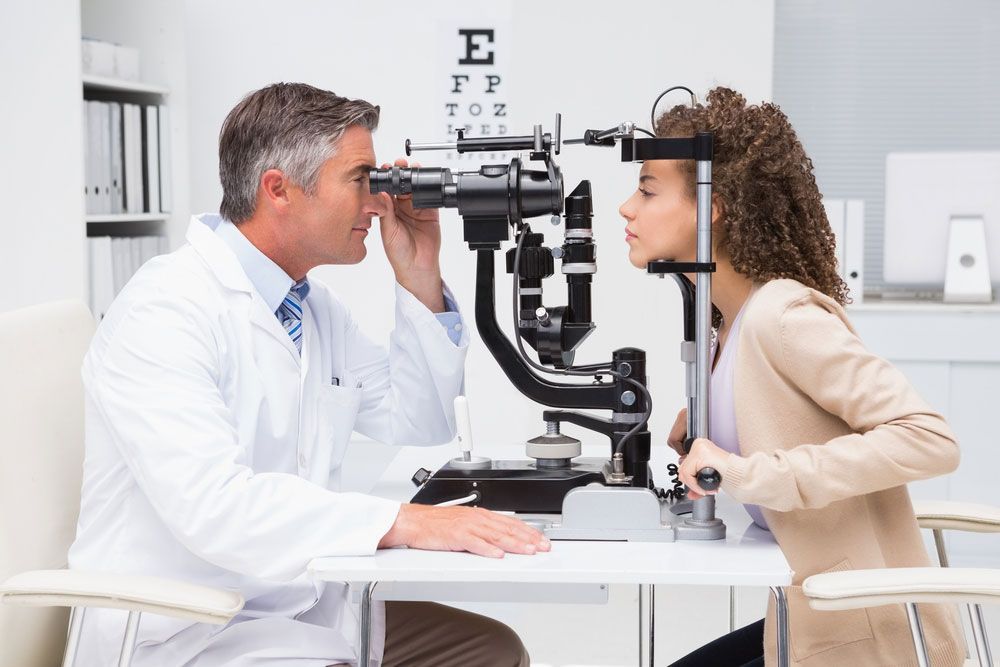8 Signs You May Need Macular Degeneration Injections
Macular degeneration is a serious condition that affects the central vision, making it harder to perform daily tasks such as reading, driving and recognising faces. It is one of the leading causes of vision loss in individuals aged 60 and over, according to the Macular Society. In its advanced stages, macular degeneration can significantly impact the quality of life, but with the right treatment, it is possible to manage and even slow the progression of the disease. If you are experiencing any of the following signs, you may need to consider seeing an ophthalmologist for macular degeneration injections.
1. Blurry or Distorted Vision
One of the earliest signs of macular degeneration is blurred or distorted vision, especially when reading or looking at straight lines. People often report that straight lines, such as doorframes or the edges of a table, appear wavy or bent. This can make it difficult to focus on detailed tasks. If you notice these changes, it’s crucial to seek the advice of an experienced specialist who can assess your condition and determine if macular degeneration injections are the best course of action.
2. Difficulty Seeing in Low Light
Macular degeneration affects the retina’s ability to function properly, especially in low-light environments. If you struggle to see clearly in dimly lit areas, such as during the evening or when moving from bright to dark places, it could be a sign of macular degeneration. This difficulty seeing in low light can make activities like driving at night more challenging and unsafe. Seeking an early diagnosis can help in managing the condition before it worsens.
3. A Dark or Empty Spot in Your Centre of Vision
A tell-tale sign of advanced macular degeneration is the presence of a dark or empty spot in the centre of your vision. This can make it difficult to read, recognise faces or engage in any activity that requires central vision. The spot may start small and gradually grow larger over time. This symptom typically signals the need for intervention, such as macular degeneration injections, to halt or slow further deterioration of vision.
4. Difficulty Adapting to New Glasses
If you find that your current prescription glasses no longer help you see as clearly as they used to, it may be a sign of macular degeneration. As the condition progresses, even with corrective lenses, visual clarity can decline. If you’re noticing that your vision is not improving despite a new pair of glasses, it may be time to consult an ophthalmologist to assess your eye health and determine whether macular degeneration injections might be beneficial for you.
5. Visual Hallucinations or Seeing Colours Incorrectly
In some cases, individuals with macular degeneration report seeing visual distortions, such as colours appearing incorrectly or hallucinations, which are known as Charles Bonnet Syndrome. While this is not directly caused by macular degeneration, it is often associated with vision loss. If you experience any unusual visual changes or hallucinations, it is important to visit an ophthalmologist for a thorough examination.
6. Difficulty Recognising Faces
As macular degeneration affects the central part of the retina, it can make it harder to recognise faces, even those of family members and close friends. This loss of central vision can impact social interactions and daily activities. If you find that you are increasingly having trouble recognising people, it may indicate that macular degeneration is progressing, and treatment options such as macular degeneration injections could help slow the deterioration of your vision.
7. Gradual Loss of Colour Vision
Macular degeneration can also lead to a gradual loss of colour vision, which can have a significant impact on daily life. As the condition progresses, the central part of the retina, known as the macula, deteriorates. The macula is crucial for detailed vision and is responsible for distinguishing colours. When this part of the retina is affected, the brain may not receive accurate signals from the eye, causing colours to appear faded, less vibrant or difficult to differentiate. You might notice that the bright colours you once easily identified, such as red, green or blue, seem more muted or washed out or that subtle shades become harder to distinguish. This loss of colour intensity can make simple tasks, like choosing clothes, recognising traffic lights or even reading a colourful image, more challenging.
In some cases, individuals with macular degeneration may also experience difficulty distinguishing between colours that are similar in tone, such as blue and green or yellow and orange. This can be particularly distressing, as it affects the ability to fully enjoy the richness of the world around you. In more advanced stages, the loss of colour vision can become more pronounced, further hindering activities that rely on accurate colour perception.
8. Frequent Changes in Your Prescription
Frequent changes in your prescription for glasses or contact lenses may indicate a deeper underlying problem, such as macular degeneration. Since the condition impacts central vision, it can cause shifting vision problems that glasses alone cannot correct. If you find that your vision continues to change even with a new prescription, it may be time to consult with a specialist who can determine if macular degeneration injections are necessary to slow the progression of the disease.
The Importance of Early Intervention
Macular degeneration is a progressive condition, meaning that if left untreated, it can worsen over time and lead to permanent vision loss. According to the Macular Society, around one in every 200 people aged 60 and older has age-related macular degeneration. This highlights the importance of being aware of the signs and seeking early intervention. If you experience any of the symptoms mentioned above, it's crucial to consult with an ophthalmologist who can assess your condition and determine if macular degeneration injections are the best treatment option for you.
At 130 Eye, we understand how important it is to receive timely and accurate care. Our practice in Townsville, led by Dr Glastonbury, offers comprehensive eye care and eye surgery, including specialised treatments for macular degeneration. As a dedicated and experienced ophthalmologist, Dr Glastonbury focuses on ensuring that every patient receives the best care possible. We take pride in providing high-quality services that you can trust, with a commitment to patient outcomes and personalised treatment plans.
Why Choose the Best Macular Degeneration Injection Doctor?
Choosing the
best macular degeneration injection doctor is crucial in managing the condition and preserving your vision. At 130 Eye, we prioritise quality care and patient satisfaction by reviewing all referrals thoroughly and ensuring that each patient receives the appropriate treatment options based on their individual needs. Our robust systems around patient care and commitment to transparency ensure that our services are delivered with the highest standards of safety and excellence.
Our practice offers accountability and personal ownership in every aspect of patient care, so you can feel confident knowing that you are receiving the best possible treatment for your eye health. Dr Glastonbury and his team work closely with you to develop a personalised care plan, ensuring that all of your concerns are addressed and that you have access to the best macular degeneration injection treatments available.
If you suspect that you may need macular degeneration injections or if you are experiencing any of the signs mentioned in this article, don't hesitate to contact us at 130 Eye. Our team is here to provide you with expert advice and treatment options tailored to your specific needs. We are committed to ensuring that you receive the best care possible and that your vision is protected for years to come. Reach out to 130 Eye today and take the first step towards preserving your vision with the help of the best macular degeneration injection treatments available.


